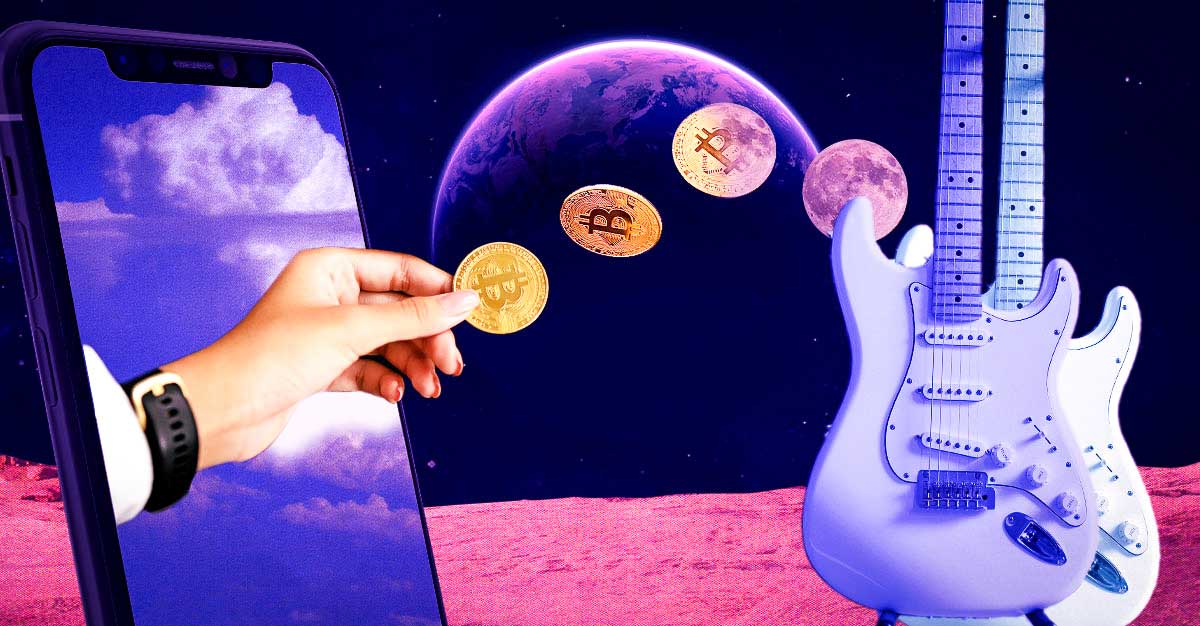Maria Mileder, Global Head of Innovation at PayPal, joined us in our Innovation Rockstars Podcast and shared insights about her mission to enable everyone to find their entryway into innovation.
PayPal is a multinational financial technology company driving an online payments system in more than 200 countries. Driven by the goal to democratize financial services to people from all economic backgrounds, PayPal is aligned around a central vision to make the movement and management of money as simple, secure, and affordable as possible.
Maria Mileder is the Global Head of Innovation at PayPal, with an academic background in sociology and economics. She joined the company as a compliance analyst in 2009 but was exposed to the world of innovation when she took part in a two-year technology leadership program sponsored by PayPal. Today, as the lead of the global innovation program, Maria's mission is to "enable everyone to find their entryway into innovation."
Maria joined us on the Innovation Rockstars Podcast to talk about PayPal's innovation toolbox and how the global company fosters and enhances innovation with its global innovation tournament.
🎬 The full video podcast or 🎧 pure audio enjoyment on Spotify or Apple Podcast.
The Three Horizon Innovation Model
When asked how PayPal perceives innovation in practice, Maria reveals that PayPal does not operate with a centralized R&D structure. Instead, the organization prefers a decentralized strategy that invites everyone to contribute and be creative. Maria believes that innovation is a broad space and the absence of a typical career in the field makes it a lot more interesting. She insists that one does not need an innovation title to be an innovator, rather to understand one's skills. Maria talks about how some employees at PayPal are excellent innovators regardless of their actual title. The first and foremost thing, Maria says, is that all employees must understand the company's journey. It is vital to ensure that everyone finds their entryway into innovation and participates in the journey straight away.
Maria goes on to say that PayPal makes use of the three horizon model to consider its innovation efforts. The three horizon model is a growth strategy framework that companies can use to contemplate the future. At PayPal, horizon one is concerned with where innovation occurs on a daily basis in people's roles and jobs, and it focuses on utilizing all of the available toolkits. Horizon two considers the near future for the next three years. The third horizon, which Maria refers to as "the tricky one," focuses on motivating their employees to innovate over a five to ten-year period.
The horizon model is a tool to assist companies in managing diverse visions and steering conversations to show businesses the large innovation plan and the goals for that plan. This includes when they can expect a return on investment, results, and even profit. By allowing their employees to make assumptions that may or may not be accurate, PayPal uses the three horizon model to enable them to understand potential investment opportunities in a better way. After crystallizing a proper understanding regarding the economic aspects, human aspects, and other resources, they set milestones against their critical assumptions before evaluating if they hit them or not. Maria emphasizes the importance of comprehending how the aspects tie together to write off any investment in a conscious manner to eliminate the risk of falling into the sunk cost fallacy, which is when people continue a behavior or endeavor due to previously invested resources.
PayPal’s Global Innovation Tournament
PayPal's three horizon approach to innovation is complemented by its Global Innovation Tournament: a concept conceived in 2019 as a means to foster and enhance innovation across each and every member of the company.
Maria recalls 2019 when the company felt the momentum to stage this grassroots movement. This realization gave them a shared purpose of being and creating something together to accelerate innovation – as a result, the tournament was formed. The five-month tournament is divided into three to five phases, depending on how PayPal organizes it. It includes the formulation of a business plan, prototyping, and finally presenting the idea to investors, represented by PayPal's C-suite leaders. This adventure consists of a learning program in which PayPal encourages everyone to practice new skills in a safe environment and elevate them to new levels. In the very first year, the tournament amassed an astounding 1500 idea submissions on how to innovate on genuine business, customer, and employee opportunity ideas.
Briefing about how the tournament was set up, Maria tells how they didn't want to step up with something overly complicated, and the result was something that people enjoyed. Maria recounts how the company's employees banded together to discover and resolve issues. She further reveals that the working group had not paid much attention to if the plan would work out. The positive attitude has undoubtedly paid off as the tournament that started with twenty volunteers with next to no budget now includes thousands of staff members and employees, who come together to innovate on behalf of the business and customers.
PayPal’s Innovation Toolkit
PayPal also makes use of an innovation toolkit as a means to promote innovation on a more day-to-day basis. PayPal’s innovation toolkit is a string of activities designed to get employees to embrace innovation. The company regards innovation as a cultural transformation; to achieve this, they engage everyone in celebrating rituals together to create a repetitive habit for people.
When asked for a glimpse into the innovation toolkit of PayPal, Maria begins by pointing out that at PayPal, innovation is "part of our cultural values, alongside inclusion, wellness, and collaboration." The company hosts competitions, hackathons, playful activities and even enriches these with topics for discussions to elicit new insights to build on. Maria clarifies that these activities do not always revolve around hardcore technology, but can also be about learning skillsets for innovation using their in-house-built platforms and programs.
PayPal provides its employees with a safe space to learn, build up their network, enhance their skills, and even fail. The company emphasizes people's capabilities, pushing them to challenge themselves and get comfortable with change. Maria explains it further by citing the case of PayPal's blockchain research team, where the company gave researchers and volunteers carte blanche to experiment with various options.
Finally, the PayPal Innovation Toolkit welcomes every employee of the company to contribute fresh ideas, which can be identified as being patentable. Seeing things they never imagined come true inspires employees to take the lead and imagine even further into the future. Maria wraps up the discussion by underlining the significance of appreciating people who put in the work. Because we humans tend to revert to the familiar and comfortable, persuading employees to embrace change can be difficult. That’s why PayPal believes in rewarding people as a motivating factor.
Approaching the Innovators
When asked how PayPal identifies and approaches innovators, Maria answers that it is primarily about self-discovery. The company targets people coming in with a new set of topics and groups them according to their interests through workshops, author and speaker series, hackathons, and tournaments. Maria understands that not everyone might resonate with the journey; this is where Maria's program, which is centered around the idea of finding access and pathways into the innovation community for each staff member, comes in handy. She argues that as long as these people eventually dabble in innovation, observe and learn from their peers, and try it out, PayPal can scale up the program and related initiatives.
Maria also emphasizes the importance of motivating the employees in the right way. PayPal, thus, ensures to give back to their employees so that they feel seen and heard in the right way. According to Maria, an ideal environment is where employees see themselves as a part of the company constantly reinventing themselves. Maria believes that it is critical for employees to adopt the mindset that everyone is in it together and see the same thing when a project begins.
Upon being asked what message she would like to give, Maria says
In the corporate world, innovation is vital and each person must do their part.
Maria reminds us that if each of the employees in organizations did their part conscientiously, the process of innovation would be considerably enhanced. The point is not always about creating a significant movement, but innovation must be something that business personnel do consciously and talk about at all times. By employing the three horizon model, the innovation toolkit, and the global tournament, PayPal ensures that innovation is a part of an employee’s day-to-day job.
We thank Maria for this insightful interview!
Get more insights, tools, and best practices on how to foster innovation within your organization and download our toolkit “From Innovation Rookie to Rockstar”!




